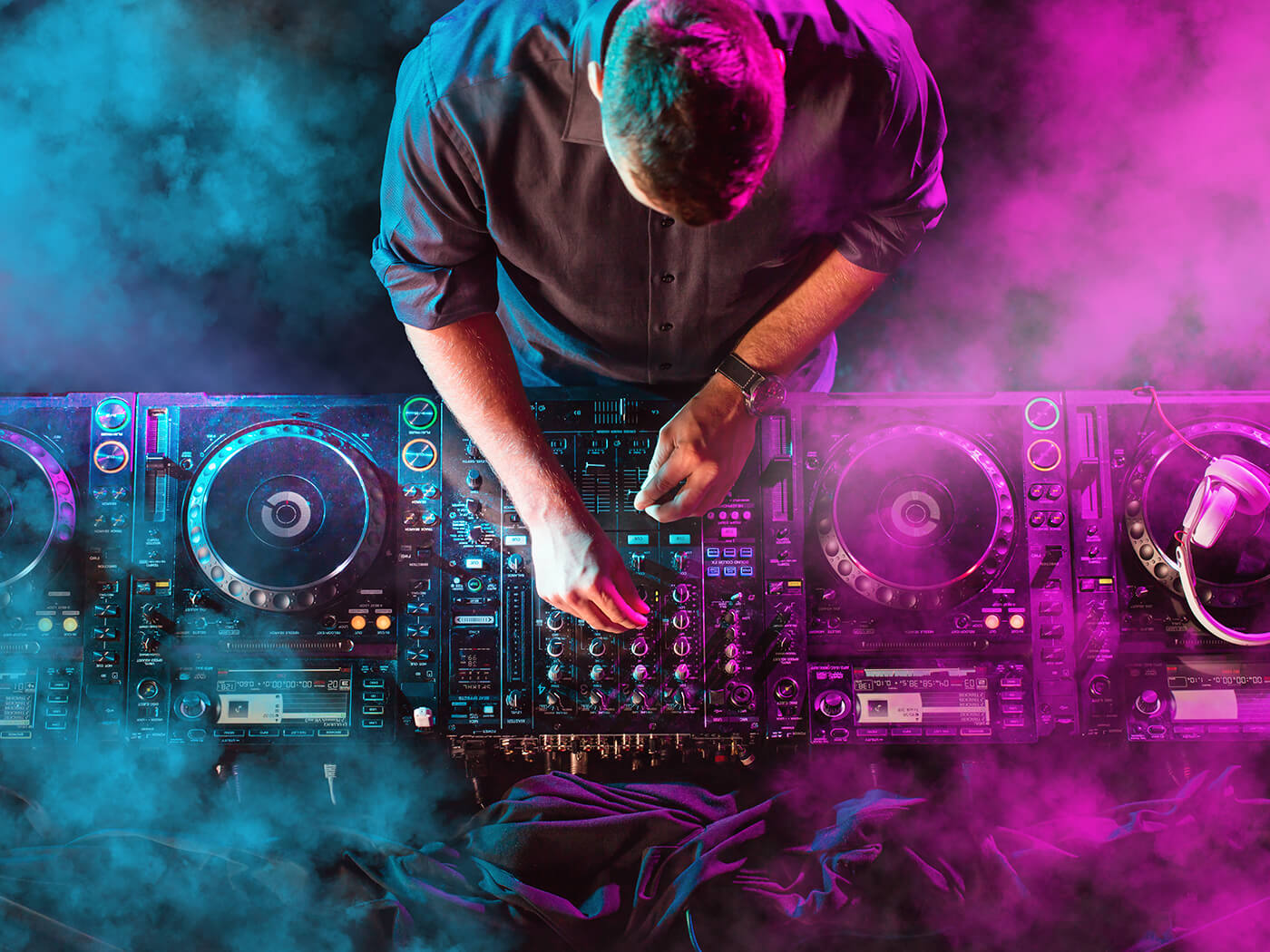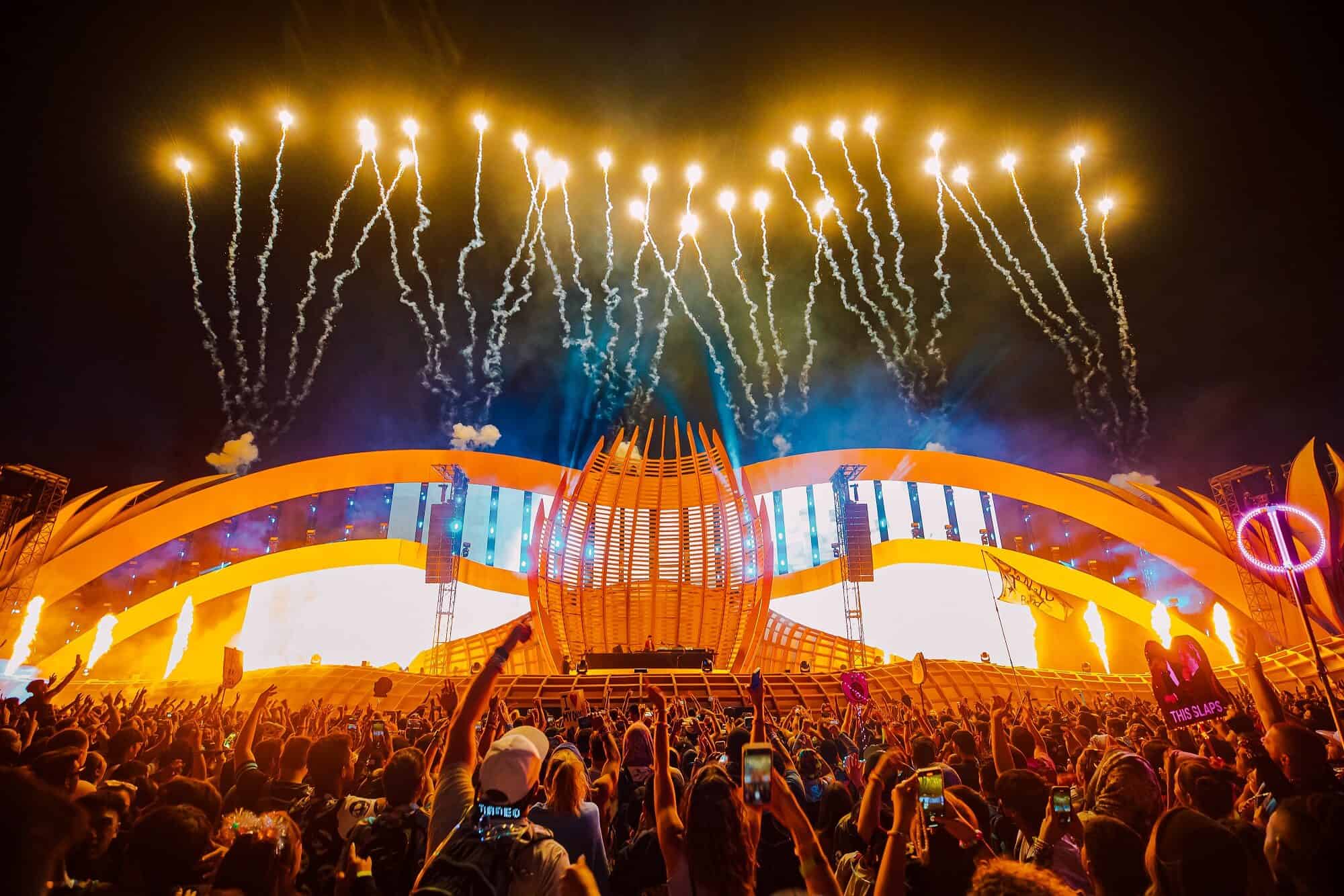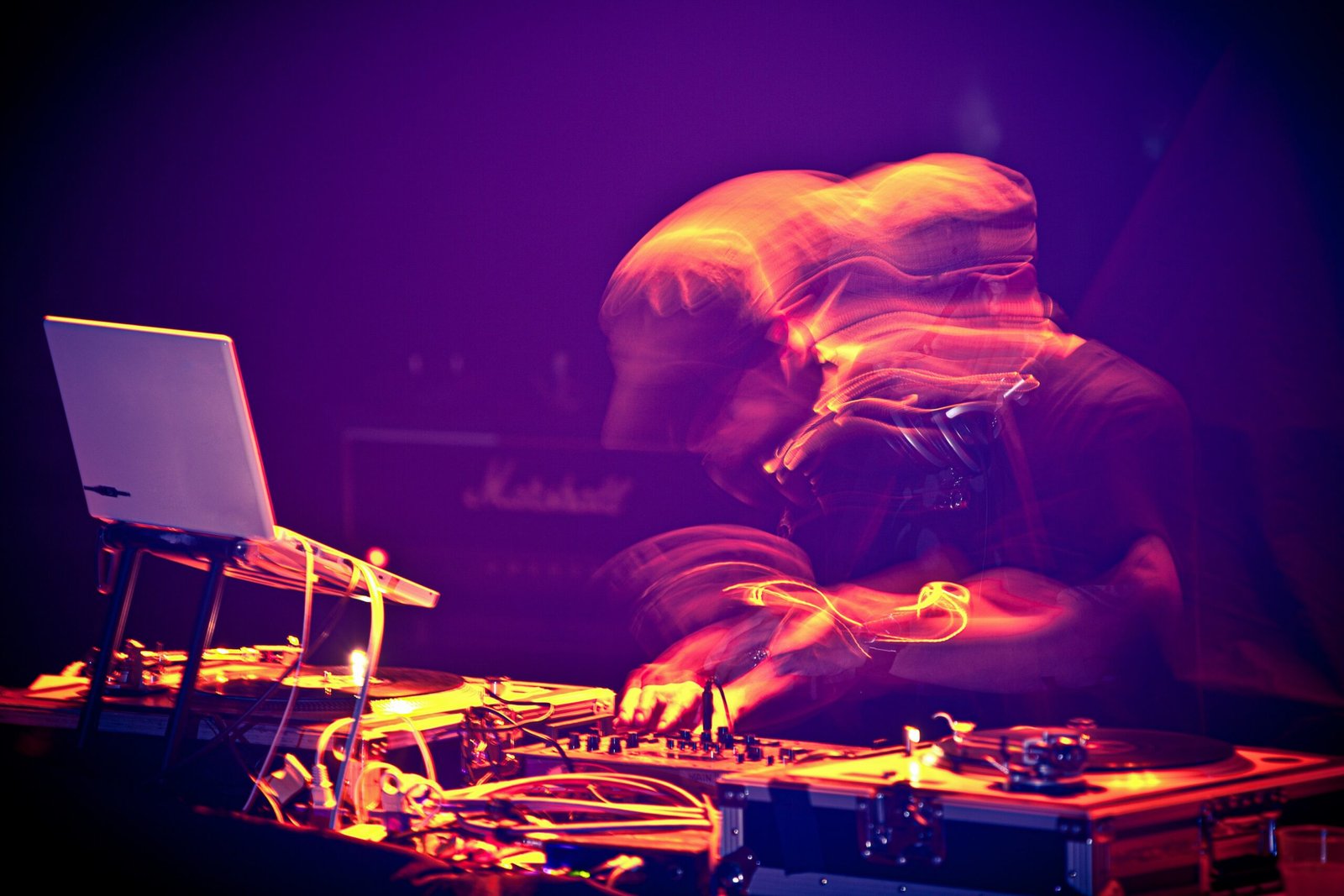Electronic music has come a long way since its inception. From the experimental sounds of the 1940s to the mainstream hits of today, this genre has evolved and diversified in ways that were once unimaginable.
One of the earliest forms of electronic music emerged in the 1940s with the development of the first electronic musical instrument, the Theremin. This instrument, played without physical contact, produced eerie, otherworldly sounds that were unlike anything heard before.
In the 1950s and 1960s, electronic music began to gain traction as composers started experimenting with tape recorders and synthesizers. Musicians like Karlheinz Stockhausen and Pierre Schaeffer pushed the boundaries of sound, creating compositions that challenged traditional notions of music.
By the 1970s, electronic music had started to enter the mainstream with the emergence of genres like disco and funk. Artists like Giorgio Moroder and Kraftwerk incorporated electronic elements into their music, creating infectious beats and futuristic sounds that captivated audiences.
As technology advanced, so did the possibilities for electronic music. In the 1980s, the rise of synthesizers and drum machines led to the birth of new genres like synth-pop and new wave. Bands like Depeche Mode and New Order embraced these electronic instruments, crafting catchy melodies and danceable rhythms.
The 1990s marked a significant turning point for electronic music with the rise of rave culture and the popularity of genres like techno and house. These genres, characterized by repetitive beats and synthesized sounds, became synonymous with the underground club scene.
With the advent of the 21st century, electronic music continued to evolve and diversify. Subgenres like dubstep, trance, and drum and bass gained popularity, appealing to different audiences with their unique blend of bass-heavy beats and intricate melodies.
Today, electronic music has permeated nearly every aspect of popular culture. It is no longer confined to underground clubs and niche audiences. Artists like Daft Punk, Skrillex, and Calvin Harris have achieved mainstream success, bringing electronic music to the forefront of the music industry.

Electronic music has become a global phenomenon in recent years, captivating audiences with its infectious beats and innovative sounds. From underground clubs to massive music festivals, the genre has evolved into a diverse and dynamic landscape, encompassing a wide range of subgenres and styles.
One of the most fascinating aspects of electronic music is the plethora of genres that exist within the genre itself. Each genre has its own distinct characteristics and influences, giving rise to a unique sonic experience. From the euphoric melodies of trance to the dark and pulsating beats of techno, there is something for everyone in the world of electronic music.
One of the key figures in the electronic music scene is the DJ. DJs play a crucial role in shaping and curating the sounds that define a particular genre or style. They blend tracks seamlessly, creating a continuous flow of music that keeps the crowd dancing and energized.
Some of the most famous DJs in the world have emerged from the electronic music scene. Artists like Calvin Harris, David Guetta, and Martin Garrix have achieved global success and have become household names. Their performances at major festivals and their chart-topping hits have solidified their positions as icons of the genre.

Whether you’re a seasoned fan or a newcomer to electronic music, exploring the various genres and discovering new DJs can be an exciting journey. From the pulsating energy of house music to the experimental sounds of IDM, there is a vast universe waiting to be explored.
The Most Popular Electronic Music Genres
Electronic music has become a dominant force in the music industry, with a wide range of genres that cater to different tastes and preferences. While there are numerous electronic music genres, some have gained more popularity than others over the years. Here, we will explore some of the most popular electronic music genres and what sets them apart:
1. Techno
Techno is known for its repetitive beats and synthesized sounds. Originating in Detroit in the 1980s, it has evolved into various subgenres, including minimal techno, acid techno, and Detroit techno. Techno is characterized by its driving rhythm and energetic atmosphere, making it a favorite among club-goers.
2. House
House music emerged in Chicago in the 1980s and quickly spread worldwide. It is characterized by its four-on-the-floor beat, soulful vocals, and uplifting melodies. House music has evolved into subgenres like deep house, progressive house, and tech house, each offering a unique blend of electronic and traditional elements.
3. Trance
Trance music is known for its melodic and uplifting soundscapes, often featuring ethereal vocals and euphoric build-ups. It originated in Germany in the early 1990s and has since gained a massive following worldwide. Trance music is often associated with a sense of euphoria and emotional connection.
While these are just a few examples, there are countless other electronic music genres that have their own unique characteristics and fan bases. Genres like dubstep, drum and bass, and ambient have also gained significant popularity in recent years.
Whether you prefer the energetic beats of techno, the soulful melodies of house, or the euphoric soundscapes of trance, electronic music offers something for everyone. So, take some time to explore different genres and find the one that resonates with you the most!
The Genre That Makes the Most Money for DJs

Electronic music has taken the music industry by storm, and DJs are at the forefront of this revolution. With their ability to mix beats and create seamless transitions, DJs have become an integral part of the music scene. But not all electronic music genres are created equal when it comes to making money.
When it comes to the genre that makes the most money for DJs, it’s hard to ignore the power of EDM (Electronic Dance Music). EDM has dominated the charts and festival stages around the world, and its popularity shows no signs of slowing down. DJs like Calvin Harris, Avicii, and David Guetta have become household names, earning millions of dollars through their music and performances.
One of the reasons why EDM is so lucrative for DJs is its ability to appeal to a wide audience. The infectious beats and catchy melodies of EDM tracks make them perfect for clubs, festivals, and even radio airplay. This widespread appeal translates into higher ticket sales for DJ performances and increased streaming and download revenue.
Another factor that contributes to the financial success of EDM is the branding opportunities it offers. Many DJs have successfully built their own brands, partnering with fashion labels, alcohol companies, and even technology brands to create lucrative sponsorship deals. This not only adds to their income but also helps to expand their reach and exposure.
Furthermore, the rise of social media has played a significant role in the financial success of EDM DJs. Platforms like Instagram, Twitter, and TikTok have allowed DJs to connect directly with their fans, promote their music, and announce upcoming shows. This direct line of communication has helped DJs build loyal fan bases, resulting in sold-out shows and higher demand for their music.
While EDM may be the genre that makes the most money for DJs, it’s important to note that success in the music industry is not solely determined by financial gain. Regardless of the genre they choose, DJs should focus on creating music that resonates with their audience, staying true to their artistic vision, and continuously honing their craft.
The Richest DJs in the World and Their Genres

Music has always been a lucrative industry, and DJs are no exception to this. With their talent for mixing beats and creating electrifying music experiences, some DJs have become incredibly wealthy. In this blog post, we will explore the world of the richest DJs and their respective genres.
1. Calvin Harris – Genre: EDM (Electronic Dance Music)
Calvin Harris, a Scottish DJ, is often hailed as one of the highest-paid DJs in the world. With his infectious beats and collaborations with renowned artists, Harris has amassed a staggering fortune. His genre of choice is EDM, which combines elements of electronic music and dance rhythms.
2. David Guetta – Genre: House Music
French DJ and producer David Guetta is another name that dominates the list of richest DJs. Guetta is known for his infectious house music tracks that have gained global popularity. His collaborations with A-list artists have contributed to his immense success and wealth.
3. Tiësto – Genre: Trance Music
Dutch DJ and producer Tiësto is a legend in the trance music scene. With his mesmerizing tracks and energetic live performances, Tiësto has established himself as one of the wealthiest DJs in the world. His genre, trance music, is characterized by its hypnotic beats and uplifting melodies.
4. Steve Aoki – Genre: Electro House
American DJ and producer Steve Aoki has made a name for himself in the world of electro house music. Known for his high-energy performances and crowd-surfing antics, Aoki has built a massive fan base and a substantial fortune.
5. Martin Garrix – Genre: Progressive House
Dutch DJ and producer Martin Garrix rose to fame at a young age and quickly became one of the most successful DJs in the world. His genre of choice, progressive house, is characterized by its melodic and uplifting sound.
These are just a few examples of the richest DJs in the world and the genres they excel in. The music industry continues to evolve, and new talents are emerging every day, but these DJs have certainly left an indelible mark on the industry
The Most Played Electronic Music Genres at Parties

Electronic music has become a staple at parties and clubs all around the world. With its infectious beats and catchy melodies, electronic music has the power to get people on the dance floor and keep them there all night long. But with so many different genres within the electronic music realm, which ones are the most played at parties?
One of the most popular electronic music genres at parties is house music. Known for its groovy basslines and uplifting vocals, house music has a universal appeal that makes it a favorite among partygoers. Whether it’s deep house, tech house, or progressive house, you can always count on hearing some form of house music at a party.
Another genre that dominates the party scene is techno. With its driving beats and dark atmosphere, techno is perfect for those late-night dance sessions. From Detroit techno to Berlin techno, this genre is all about creating a hypnotic and immersive experience on the dance floor.
Trance music is another genre that is commonly played at parties. With its euphoric melodies and uplifting vibes, trance music has the ability to transport listeners to another dimension. Whether it’s classic trance or progressive trance, this genre is sure to get the crowd moving.
Lastly, we have drum and bass, a genre known for its high energy and fast-paced rhythms. Drum and bass is perfect for those who want to let loose and dance their hearts out. With its intense basslines and rapid-fire beats, this genre is guaranteed to keep the party going.
Electronic music has gained immense popularity worldwide, with festivals and events dedicated solely to this genre. Artists like Daft Punk, Kraftwerk, and The Chemical Brothers have paved the way for electronic music to become a household name.
Not only has electronic music made its mark on the mainstream music industry, but it has also influenced other genres like pop, hip-hop, and rock. Many artists incorporate electronic elements into their music, adding a modern and futuristic touch.
With the advancement of technology, electronic music continues to evolve and innovate. New software and equipment allow artists to create intricate and complex compositions, taking their creativity to new heights.
Whether you’re a fan of electronic music or new to the genre, there is something for everyone to enjoy. The mesmerizing beats, infectious melodies, and immersive atmosphere make electronic music a captivating experience.







